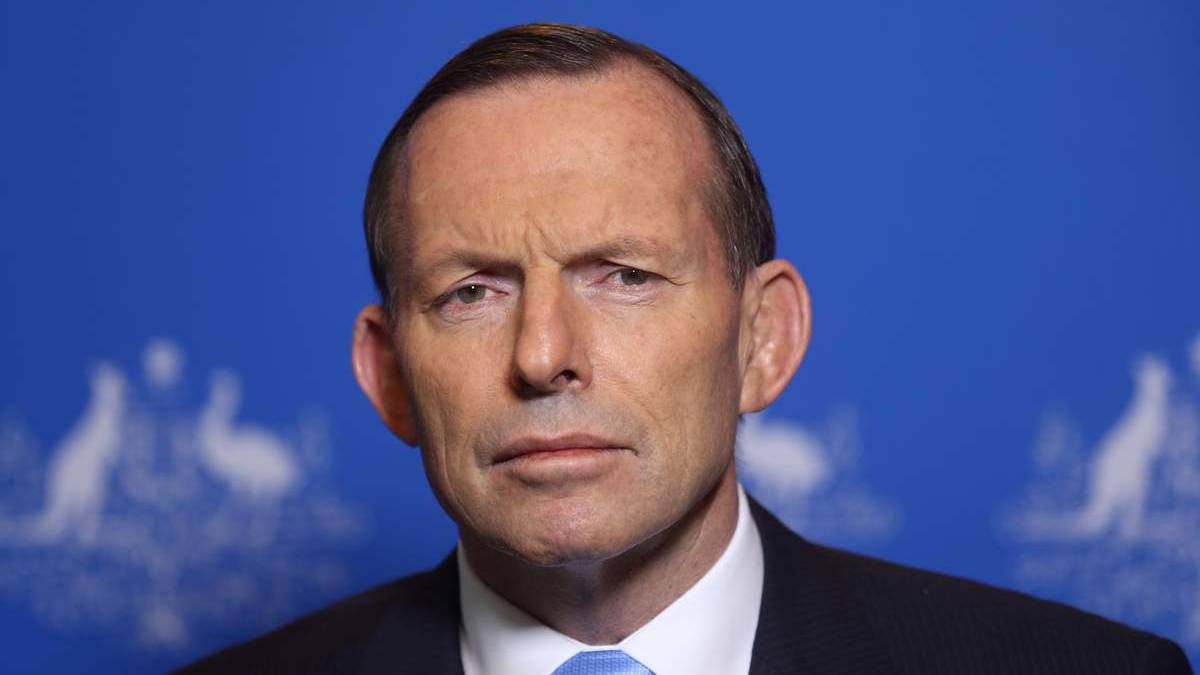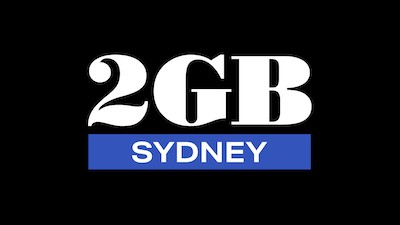Why a ‘Captain’s Pick’ On Simulcast Streaming will Never Happen

Web simulcast of radio broadcasts is a thorn in the side of two proud industries and the idea that a ‘captain’s pick’ either from Tony Abbott or Malcolm Turnbull would be a popular political move is further evidence that there’s a real misunderstanding of the issue and something that is holding back real progress.
One thing is for certain, paying huge fees for music would be a major impost on the balance sheets of commercial radio around the country. CRA is right to try to protect their turf and get the best deal possible for their stakeholders. That’s their job, right?
Radio has been reasonably successful in keeping the dogs of business model change at bay for a long time. Print media are being decimated. The music industry has been smashed to less than half its size in a decade. The traditional TV model is under attack from online delivery. While a fundamental change to radio’s business model is unwelcome, it won’t be a battle won by government intervention when other industries are being forced to face similar and worse changes head on.
 Conversely, PPCA are protecting the rights of copyright holders to get the best value for their product in a difficult market. Let’s be clear—the change here is not being driven by the music industry, its being driven by consumers. Music, radio and consumers had a pretty happy symbiotic relationship that I’m pretty sure two of the three players in the love triangle would be more than happy to go back to. Radio played the music, consumers then bought the music, record companies then produced more music, radio played the music and so the cycle progressed. What’s changed?
Conversely, PPCA are protecting the rights of copyright holders to get the best value for their product in a difficult market. Let’s be clear—the change here is not being driven by the music industry, its being driven by consumers. Music, radio and consumers had a pretty happy symbiotic relationship that I’m pretty sure two of the three players in the love triangle would be more than happy to go back to. Radio played the music, consumers then bought the music, record companies then produced more music, radio played the music and so the cycle progressed. What’s changed?
 Consumers decided that ownership of music was not the way forward in the 21st century. Radio and music didn’t change the rules. The consumers did. Consumers have voted with their feet—they want to consume music, not to own it, so just as printer companies have to make money out of consumption (toner), not hardware (printers), the music industry has been forced to change its model so that it’s making money from consumption (streaming/sync/public performance), not hardware (CDs).
Consumers decided that ownership of music was not the way forward in the 21st century. Radio and music didn’t change the rules. The consumers did. Consumers have voted with their feet—they want to consume music, not to own it, so just as printer companies have to make money out of consumption (toner), not hardware (printers), the music industry has been forced to change its model so that it’s making money from consumption (streaming/sync/public performance), not hardware (CDs).
It’s based on consumer demand and as we’ve seen around the world, consumers are happy to pay for Spotify subscriptions. They are happy to listen to ads on Pandora. They are happy (well maybe happy is the wrong word) to watch a pre-roll ad on YouTube. But they increasingly don’t want to pay money to own a song, therefore the old value chain no longer applies.
The music industry can either evolve their model or die and to evolve they need to be able to set a price on their content in new online markets to move the revenue model to what consumers are demanding.
This isn’t just a music phenomenon. Change in consumer behaviour is impacting business models everywhere. Increasingly, consumers don’t want to buy a box set of TV series’ when they can have a Netflix subscription. They understand that they can watch the AFL on Channel Seven paid for by ads. They understand they can also watch greater coverage on Foxtel paid for by subscription. And they get that they can go to Telstra to watch it online. The choice is in their hands. They don’t care how the cake is baked, they just know that the business relationships behind the scenes give them the content they want, when they want it with a fair deal for all parties.
The problem for radio and its relationship with music as the traditional symbiotic relationship changes is that it’s the only business relationship with a legislated restriction of trade, so there’s a false expectation of the value of music built into the system which when it comes to negotiating things like online rights, immediately creates friction. For an industry that’s been paying 1% for decades, even a shift to 2% is seen as a doubling of the fee, which is of course a shock to any reasonable person. To a music industry used to dealing with percentages for other online music uses often of over 50%, of course a starting point of 1% is an affront. It makes civil negotiations very difficult and results in the kind of situation we currently find ourselves in. It’s not the fault of radio or music, it’s the fault of a government regulation that’s shelved an ongoing discussion about the value of music to radio and the value of radio to music for decades that in a healthy industrial relationship would have evolved gradually over that time. Now all of a sudden the market expects both sides to evolve a collective thinking overnight. Anyone looking at the current situation has to have sympathy for both sides.
 The music industry is a content business, no different to a radio station producing a syndicated drive show, a sporting code producing games or a journalist producing written pieces. The difference for radio and music is that the business model has been built on a cap of 1% for music royalties, a restriction that the AFL doesn’t have when it sells its online content to Telstra. It’s a restriction that CBS doesn’t have when it sells a TV series to Channel 9. It’s something that Authentic or Croc Media don’t have when they sell content to radio stations. The flip side of that is that radio business models have been built around that fixed cost for music, so any talk of that changing is a real challenge. It’s something that is completely unique to the relationship between radio and music companies and the dismantling of that protection would be the biggest risk that radio has to its business model. Far greater than the argument about simulcast streaming. When radio streams online, arguing for government intervention for essentially what is an extension of the legislated 1% cap into the online world, is arguing for an expansion of a trade restriction that frankly, I wouldn’t be reminding a supposedly free market government exists.
The music industry is a content business, no different to a radio station producing a syndicated drive show, a sporting code producing games or a journalist producing written pieces. The difference for radio and music is that the business model has been built on a cap of 1% for music royalties, a restriction that the AFL doesn’t have when it sells its online content to Telstra. It’s a restriction that CBS doesn’t have when it sells a TV series to Channel 9. It’s something that Authentic or Croc Media don’t have when they sell content to radio stations. The flip side of that is that radio business models have been built around that fixed cost for music, so any talk of that changing is a real challenge. It’s something that is completely unique to the relationship between radio and music companies and the dismantling of that protection would be the biggest risk that radio has to its business model. Far greater than the argument about simulcast streaming. When radio streams online, arguing for government intervention for essentially what is an extension of the legislated 1% cap into the online world, is arguing for an expansion of a trade restriction that frankly, I wouldn’t be reminding a supposedly free market government exists.
 If Tony Abbott was to take a ‘captain’s pick’ and make a ruling that an online simulcast is the same as a terrestrial broadcast and should not be charged twice, the impact would be profound. It’s an easy argument to make against a structurally weakened industry like music, but by making that call, the precedent Abbott (or Turnbull) would be setting is saying that Channel 9’s broadcast of the AFL can be streamed online free of charge because they already paid for the broadcast rights, automatically removing millions of dollars in value to the AFL for their online rights and impacting on other rightsholders. It would mean that Foxtel should be able to stream Game of Thrones live online because they already paid for the broadcast rights, impacting business models like Stan or Netflix. It would have a profound impact on so many new business models, most of them with millions more dollars to fight against it than what radio or music have.
If Tony Abbott was to take a ‘captain’s pick’ and make a ruling that an online simulcast is the same as a terrestrial broadcast and should not be charged twice, the impact would be profound. It’s an easy argument to make against a structurally weakened industry like music, but by making that call, the precedent Abbott (or Turnbull) would be setting is saying that Channel 9’s broadcast of the AFL can be streamed online free of charge because they already paid for the broadcast rights, automatically removing millions of dollars in value to the AFL for their online rights and impacting on other rightsholders. It would mean that Foxtel should be able to stream Game of Thrones live online because they already paid for the broadcast rights, impacting business models like Stan or Netflix. It would have a profound impact on so many new business models, most of them with millions more dollars to fight against it than what radio or music have.
When the emotion is taken out of it, it really is an unwinnable political argument that would create more headaches than it would solve and end up pitting the government up against lobby groups that make PPCA and CRA look like minnows. THAT’S why there’s been an eerie silence from government and why there will continue to be. The conversation about the value of music to radio and the value of radio to music is overdue and a really important one to have but the way forward is for the parties to sit down and work out a solution together, not to continue a standoff in the hope for a solution from on high. This one isn’t going to be solved by government intervention and the longer both parties kid themselves that it might be, the longer consumers, musicians and radio are all suffering.
About the Author:
 SGC Media principal Stephen Green has been working in the music and media industries for over fifteen years providing consulting, PR and marketing services. SGC has worked with artists including Sheppard, Russell Morris, Gurrumul, NEEDTOBREATHE, Mia Dyson and Sticky Fingers with a passion for helping new artists break into the Australian market. A self confessed radio nerd, he was previously instrumental in the rollout of both Play MPE and DMDS to the Australian market, programmed Brisbane’s annual music industry gathering BIGSOUND, programmed and hosted an inflight channel for Canadian Airlines and currently consults for MusicShop.com.au.
SGC Media principal Stephen Green has been working in the music and media industries for over fifteen years providing consulting, PR and marketing services. SGC has worked with artists including Sheppard, Russell Morris, Gurrumul, NEEDTOBREATHE, Mia Dyson and Sticky Fingers with a passion for helping new artists break into the Australian market. A self confessed radio nerd, he was previously instrumental in the rollout of both Play MPE and DMDS to the Australian market, programmed Brisbane’s annual music industry gathering BIGSOUND, programmed and hosted an inflight channel for Canadian Airlines and currently consults for MusicShop.com.au.
Aside from SGC Media’s growing list of clients, he also oversees Title Track, a new company for alternative focused artists, sits on the board of Queensland’s peak contemporary music body Q Music and Brisbane’s Music Industry College providing an alternative secondary education for young people.


